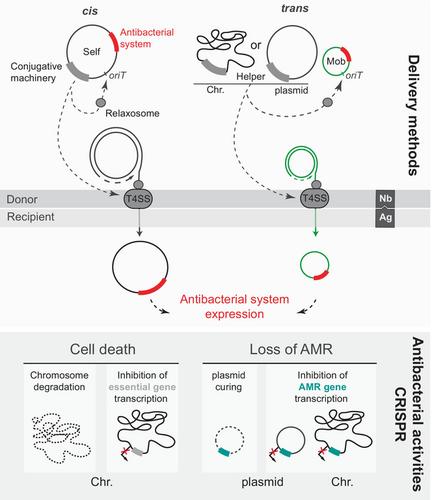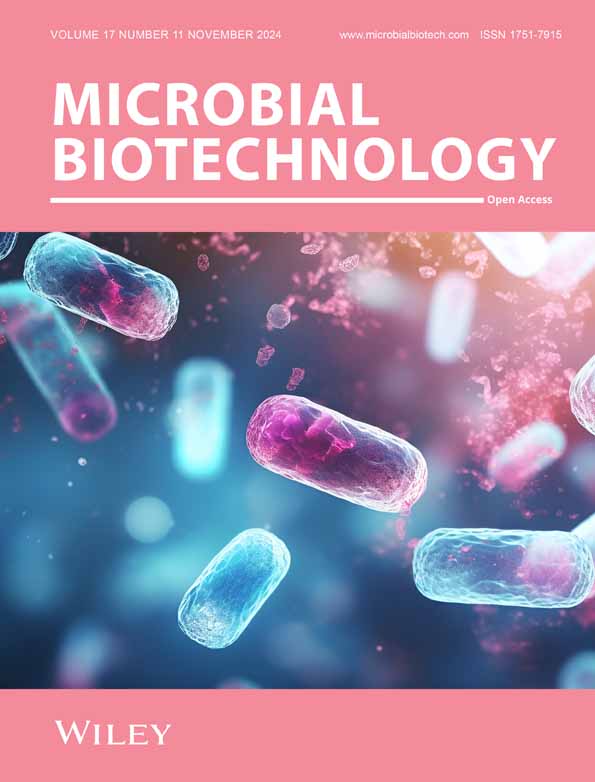基于共轭的抗菌策略的设计、潜力和局限性。
IF 5.7
2区 生物学
引用次数: 0
摘要
过去几十年来,抗菌素耐药性在全球范围内的蔓延凸显了开发创新型非抗生素抗菌策略和在全球范围内减少抗生素使用的迫切需要。为了应对这一挑战,人们开发了几种方法,这些方法依赖于通过共轭传递有毒化合物的基因转移或专门设计用于杀死目标细菌菌株或使其对抗生素不再敏感的 CRISPR 系统。这篇综述探讨了这些基于共轭的抗菌策略的设计、潜力和局限性,重点是作为抗菌效应物的 CRISPR 系统的最新进展。本文章由计算机程序翻译,如有差异,请以英文原文为准。

Design, potential and limitations of conjugation-based antibacterial strategies
Over the past few decades, the global spread of antimicrobial resistance has underscored the urgent need to develop innovative non-antibiotic antibacterial strategies and to reduce antibiotic use worldwide. In response to this challenge, several methods have been developed that rely on gene transfer by conjugation to deliver toxic compounds or CRISPR systems specifically designed to kill or resensitize target bacterial strains to antibiotics. This review explores the design, potential, and limitations of these conjugation-based antibacterial strategies, focusing on the recent advances in the delivery of CRISPR systems as antibacterial effectors.
求助全文
通过发布文献求助,成功后即可免费获取论文全文。
去求助
来源期刊

Microbial Biotechnology
Immunology and Microbiology-Applied Microbiology and Biotechnology
CiteScore
11.20
自引率
3.50%
发文量
162
审稿时长
1 months
期刊介绍:
Microbial Biotechnology publishes papers of original research reporting significant advances in any aspect of microbial applications, including, but not limited to biotechnologies related to: Green chemistry; Primary metabolites; Food, beverages and supplements; Secondary metabolites and natural products; Pharmaceuticals; Diagnostics; Agriculture; Bioenergy; Biomining, including oil recovery and processing; Bioremediation; Biopolymers, biomaterials; Bionanotechnology; Biosurfactants and bioemulsifiers; Compatible solutes and bioprotectants; Biosensors, monitoring systems, quantitative microbial risk assessment; Technology development; Protein engineering; Functional genomics; Metabolic engineering; Metabolic design; Systems analysis, modelling; Process engineering; Biologically-based analytical methods; Microbially-based strategies in public health; Microbially-based strategies to influence global processes
 求助内容:
求助内容: 应助结果提醒方式:
应助结果提醒方式:


